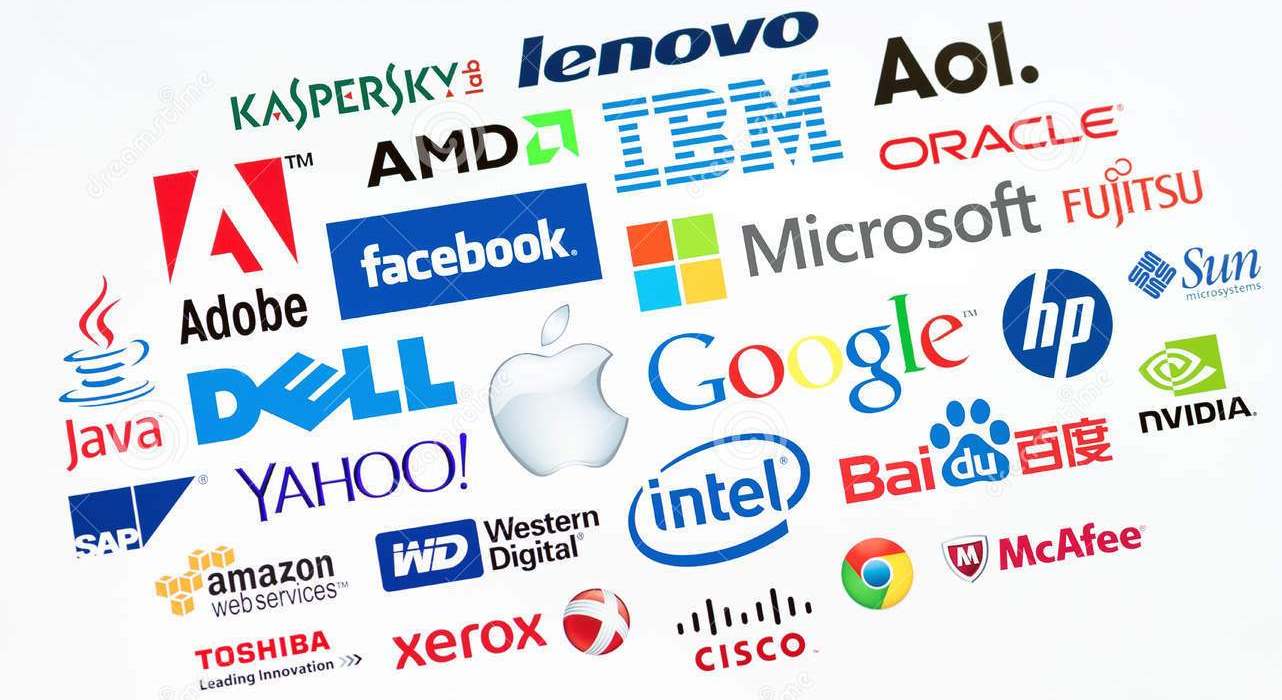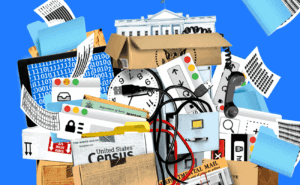To all the other financiers Labeling out there: hello! If you’re looking for the next big thing in business, the labelling industry is where you should be looking. The labelling industry’s explosive growth over the past few years has remained unchanged.
The labelling industry stands to grow rapidly in the coming years due to the rising demand for labelled products across sectors, including the food and beverage, pharmaceutical, and personal care industries. This article will discuss investment opportunities and trends in the labelling industry. Get yourself a cup of coffee and settle in for the ride.
Overview of the Labeling Company
Labelling Companies are always looking for the latest opportunities and trends in the labelling industry. This dynamic sector constantly evolves, with new technologies and innovations emerging regularly. International market demands, emerging technologies, and changing consumer preferences are some of the main drivers of current trends in the industry.
Those businesses that try to adapt to these shifts will not only maintain their position in the market but will likely improve upon it. Companies in the labelling industry are looking for ways to adapt to the growing demands of e-commerce, personalized labelling, and flexible packaging. Companies in the labelling industry can expand and thrive by anticipating and capitalizing on these trends. The labelling industry is ripe for further development and expansion, and enterprising labelling businesses can take advantage of many promising prospects in this fast-paced and fascinating sector.
The labelling industry has been evolving, and there is a growing trend toward providing labels that meet individual customer needs. Companies now seek to offer labels beyond the traditional function of identification and branding.
This shift results from the increasing demand for more personalized products and services. Customers now expect labels that provide specific and detailed information about the products they purchase. -This means that labelling companies must offer bespoke solutions catering to individual customer preferences. Additionally, there is a growing need for customizable labels to meet the needs of individual consumers.
These tags allow companies to differentiate their products and services in the eyes of consumers, increasing brand loyalty. In conclusion, labelling businesses can differentiate themselves in a significant way by providing individualized labels.
Finally, it is abundantly clear that labelling businesses should stay caught up to their competitors in the race to reap the benefits of technological advancements in the labelling industry. For better accuracy and cost savings, businesses can compete successfully in today’s market by incorporating cutting-edge labelling technology into their operations.
Labelling companies must be on the cutting edge of fashion and technology Labeling to keep up with their customers’ ever-evolving expectations. In today’s market, businesses need to come up with new ideas and offer products and services that are at the cutting edge. Businesses must keep changing to do well in the labelling market, which is always changing. One way to do this is to invest in cutting-edge technology.
Key Opportunities for Labeling Companies

Labelling companies are always changing, and making labels that are good for the environment is one of the most promising trends. In response to increasing concerns about sustainability, many businesses seek ways to reduce their carbon footprint. By choosing sustainable labelling options, companies can align themselves with consumer values and potentially reduce their costs.
Furthermore, eco-friendly labels can still meet high-quality standards, meaning businesses don’t have to compromise on performance for sustainability. This trend towards environmentally conscious labelling is expected to continue, making it a key area for innovative companies to focus on. As consumer demand for eco-friendly products grows, labelling companies offering cost-effective and sustainable solutions are poised to make significant gains in the market.
While it’s great that the labelling industry is embracing digital Labeling printing technology, they must keep an eye out for new developments and trends as they do so. For example, companies that provide eco-friendly labelling options stand to benefit from the rising demand for environmentally friendly packaging solutions.
The importance of strong, scannable labels that can withstand shipping and handling conditions has grown alongside the popularity of online shopping. Companies in the labelling industry can set themselves up for sustained success by keeping an eye on these trends and taking advantage of the speed and versatility offered by digital printing.
Trends in the Labeling Industry

Recent years have seen significant shifts in the labelling industry, with the rise of digital labelling solutions ranking among the most significant developments in the sector. Because of this shift, businesses now have more opportunities than ever to automate and streamline their operations, which has resulted in lower costs and more reliable labels. Label manufacturers can now process orders more quickly and efficiently thanks to digital solutions, and customers have more options for personalization than ever before. Digital labels are becoming increasingly popular among businesses across various sectors. Those in the labelling business who adopt this approach will be ahead of the competition.
It’s becoming increasingly apparent that digital labelling solutions will be instrumental in shaping the future of labelling businesses as the industry develops. Demand for intelligent labelling solutions is increasing rapidly among label manufacturers.
A trend that is rapidly gaining popularity. Smart labelling enables products to be tracked throughout their lifecycle, ensuring compliance with regulations and enhancing accuracy. This technology is particularly valuable for medical or other regulated labels, where accuracy is paramount. Labelling companies that offer this technology can provide their clients with a competitive edge in the market.
Smart labelling also enhances overall product visibility and can Labeling improve supply chain management. Labelling companies have a significant opportunity to capitalize on this trend by investing in technology and expanding their service offerings to meet the demands of their customers. Labelling companies must stay ahead of the curve as technology evolves to remain competitive in this dynamic industry.
As a result, labelling businesses must adopt contemporary best practices. One of the most well-liked and productive methods for improving efficiency in the factory or warehouse is using colour-coded systems. Companies’ bottom lines will improve due to greater efficiency and productivity. As a result, labelling businesses must implement this technology to maintain their competitive edge and satisfy their customers’ ever-increasing needs.
There has been a dramatic increase in the significance of product identifiers thanks to the proliferation of e-commerce and internet shopping. Companies in the labelling business that invest money into state-of-the-art equipment and forward-thinking solutions will succeed in today’s cutthroat market. In conclusion, any labelling company that wants to stay ahead of the curve and take advantage of the opportunities presented by the rapidly expanding labelling industry must adopt colour coding.
Opportunities for Investors

There are many openings for those who wish to capitalize on the expanding labelling market. Investing in reputable labelling firms that provide a wide range of options is one such chance. These businesses have a history of success and a tried and true business model that has given investors a consistent rate of return.
These firms focus on labelling for the food and beverage, pharmaceutical, and consumer goods industries. Growth in the labelling industry is also fueled by businesses’ attempts to satisfy consumers’ desire for more tailored and environmentally friendly labelling options. Investing in well-established labelling companies can provide long-term financial security, especially given the dynamic nature of the labelling industry.
Investment opportunities exist not only with well-established labelling companies but also with newer, more innovative ones. These new companies offer investors the chance to capitalize on Labeling potentially game-changing technologies and business models.
Companies like these provide novel responses to market demands and may present more advantageous risk-reward profiles. However, before investing in new labelling businesses, it is crucial to do extensive research and due diligence because they are more vulnerable to risks. Nevertheless, investors looking to diversify their holdings and profit from the expansion of the labelling industry might consider putting money into such businesses. Overall, the labelling market is ripe with opportunities and trends to help investors profit.
Potential Challenges in the Labeling Industry
Potential Challenges in the Labeling Industry: Overcoming Obstacles for Accurate Data Annotation
Introduction: The labeling industry plays a crucial role in data annotation, providing essential services for training machine learning models and developing AI applications. However, like any industry, it faces its fair share of challenges. Overcoming these challenges is vital to ensure accurate and reliable data annotation. In this article, we will explore some of the potential challenges in the labeling industry and discuss strategies for addressing them effectively.
- Annotator Subjectivity and Bias: One significant challenge in the labeling industry is annotator subjectivity and bias. Annotators may bring their personal opinions, experiences, or cultural biases into the annotation process, leading to inconsistencies and inaccuracies in labeled data. To address this challenge, it is crucial to provide clear and objective guidelines to annotators, ensuring they adhere to predefined labeling criteria and minimize personal biases. Regular training and calibration sessions can also help align annotators’ interpretations and improve inter-annotator agreement.
- Ambiguity in Labeling Instructions: Ambiguity in labeling instructions can introduce confusion and inconsistencies in the annotation process. Unclear instructions may result in different annotators interpreting the same criteria differently, leading to unreliable labeled data. To mitigate this challenge, labeling instructions should be clear, precise, and unambiguous. Instructions should provide examples, guidelines, and clarification on potential edge cases or ambiguous scenarios to guide annotators accurately. Regular communication channels between project managers and annotators can help address any questions or concerns and ensure consistent interpretation of instructions.
- Scalability and Timeliness: The demand for labeled data is increasing rapidly, requiring labeling companies to handle large volumes of data within tight deadlines. Scaling up annotation operations while maintaining quality and timeliness is a significant challenge. To address this, companies can invest in efficient annotation tools and platforms that streamline the annotation process and increase productivity. Automation and machine learning techniques can also be employed to assist annotators in handling repetitive or routine labeling tasks, freeing up time for more complex annotations.
- Quality Control and Assurance: Maintaining quality control and assurance throughout the annotation process is crucial but challenging. Annotators may make errors or deviate from the defined labeling criteria, leading to inconsistencies and inaccuracies in the labeled data. Implementing robust quality control measures, such as regular audits, double-checking, and inter-annotator agreement assessments, can help identify and rectify errors. Feedback loops between project managers and annotators, coupled with continuous training and performance monitoring, can further enhance quality control and ensure high-quality labeled datasets.
- Data Privacy and Security: Data privacy and security are paramount concerns in the labeling industry. Annotators often work with sensitive and confidential data, making it essential to maintain strict data protection measures. Companies should implement comprehensive data security protocols, including secure data transfer, restricted access controls, and anonymization techniques, to safeguard the privacy and confidentiality of the data. Compliance with relevant data protection regulations and obtaining proper consent for data usage are critical considerations to ensure data privacy and maintain the trust of clients and end-users.
- Domain Expertise and Specialized Knowledge: Some labeling tasks require domain expertise and specialized knowledge to ensure accurate and meaningful annotations. For example, medical image labeling or legal document annotation may necessitate specific expertise. Acquiring and retaining annotators with the necessary domain knowledge can be a challenge. Companies can address this by collaborating with experts or subject matter specialists to provide training and guidance to annotators. Leveraging external resources or establishing partnerships with domain experts can help ensure the quality and accuracy of annotations in specialized domains.
- Adapting to Evolving Technologies and Workflows: The labeling industry needs to continually adapt to evolving technologies and workflows. New annotation tools, frameworks, and techniques emerge, requiring companies to stay updated and invest in the necessary infrastructure and training. Companies should foster a culture of continuous learning, encourage innovation, and invest in research and development to keep pace with technological advancements. Adapting workflows to accommodate changes in project requirements, data formats, or annotation guidelines is essential for maintaining efficiency and competitiveness.
Conclusion: The labeling industry faces several challenges in its quest to provide accurate and reliable data annotation services. Overcoming these challenges requires a combination of clear guidelines, effective communication, scalable infrastructure, quality control measures, and adherence to data privacy regulations. By addressing annotator subjectivity and bias, ensuring clear and unambiguous labeling instructions, maintaining scalability and timeliness, implementing robust quality control measures, prioritizing data privacy and security, acquiring domain expertise, and adapting to evolving technologies, the labeling industry can overcome obstacles and deliver high-quality labeled datasets. Overcoming these challenges is crucial for enabling the development of accurate and reliable machine learning models and driving advancements in AI applications across various industries.
In today’s fast-paced labelling industry, there is immense pressure on labelling companies to remain up-to-date with the latest trends and technological advancements. -This poses a significant challenge for organizations that need to gain knowledge about the most recent labelling strategies and products.
Keeping pace with advancements is essential for companies that want to remain competitive and meet their customers’ demands. Please do so to avoid a loss of market share and revenue. Hence, labelling companies must invest in research and development, train their workforce to adapt to new labelling technologies and keep abreast of industry developments. In conclusion, staying up-to-date is crucial for labelling companies, and they must be willing to make continuous investments in technology to remain ahead in this ever-changing landscape.
Labelling companies are essential for ensuring that products’ labels follow applicable laws and standards. The task, however, is becoming more difficult as new regulations, such as those concerning environmental sustainability and safety standards, are implemented. It is challenging for businesses to keep up with the constantly shifting compliance requirements across different markets and countries. Because of this, Labeling Companies can now advertise their services to businesses that need help meeting the requirements of the new rules.
These companies offer their services to businesses to Labeling guarantee that the products they sell are in accordance with the laws and regulations currently in effect, to keep their businesses out of legal trouble, and to build a positive public image as socially and environmentally conscious manufacturers. In conclusion, labelling companies play an important role in assisting businesses in understanding and adhering to the numerous labelling regulations that must be met for any given product.
These regulations can be found in a variety of different places and can vary depending on the type of product. In addition, as the labelling industry expands and develops, businesses must ensure that they are up to date on the most recent fashions and technologies to maintain their competitive edge. -This necessitates making investments in automated label printing and production systems, adopting practices that are sustainable and friendly to the environment, and embracing new labelling materials and design concepts.
Companies need to make quality control a priority in order to ensure that their labels effectively communicate important information and are in compliance with regulatory requirements, despite the fact that cost considerations are important. Labelling companies can propel their long-term growth and success by striking the appropriate balance between cost and quality in their products and services. -This will allow the companies to become industry leaders.

Conclusion: Navigating Opportunities and Trends in Labeling Companies
Labelling companies are critical Labeling for businesses to produce products that are correctly labelled, compliant, and up to date. Because the regulations governing the labelling industry are always updated, businesses must remain current on this sector’s latest trends and opportunities. If they follow these steps, businesses Labeling can increase their customer base while ensuring that their products are up to the required standards.
Labelling companies offer various services, including label design, printing, and regulatory compliance. These services make it possible for companies to create labels that are appealing to the eye and informative, accurate, and compliant with relevant regulations. Therefore, working with labelling companies can benefit businesses in the long run as they can navigate complex regulations and ensure their products are labelled correctly.
Again, staying current with the most recent trends and technologies in the labelling industry is essential to maintain a competitive advantage. Labelling companies that are open to change and willing to invest in new processes and technologies, such as digital printing, automated label dispensing, and high-quality materials, will be better able to meet the requirements of businesses in today
‘s market. These labelling companies can provide solutions for producing quick, accurate, and economical labels because they do this. Businesses have to use the changes occurring in the labelling industry to modernize their labelling procedures and stay ahead of the curve as the industry continues to evolve. By forming partnerships with forward-thinking labelling companies, businesses can acquire the tools they require to compete in today’s Labeling fast-paced market.
